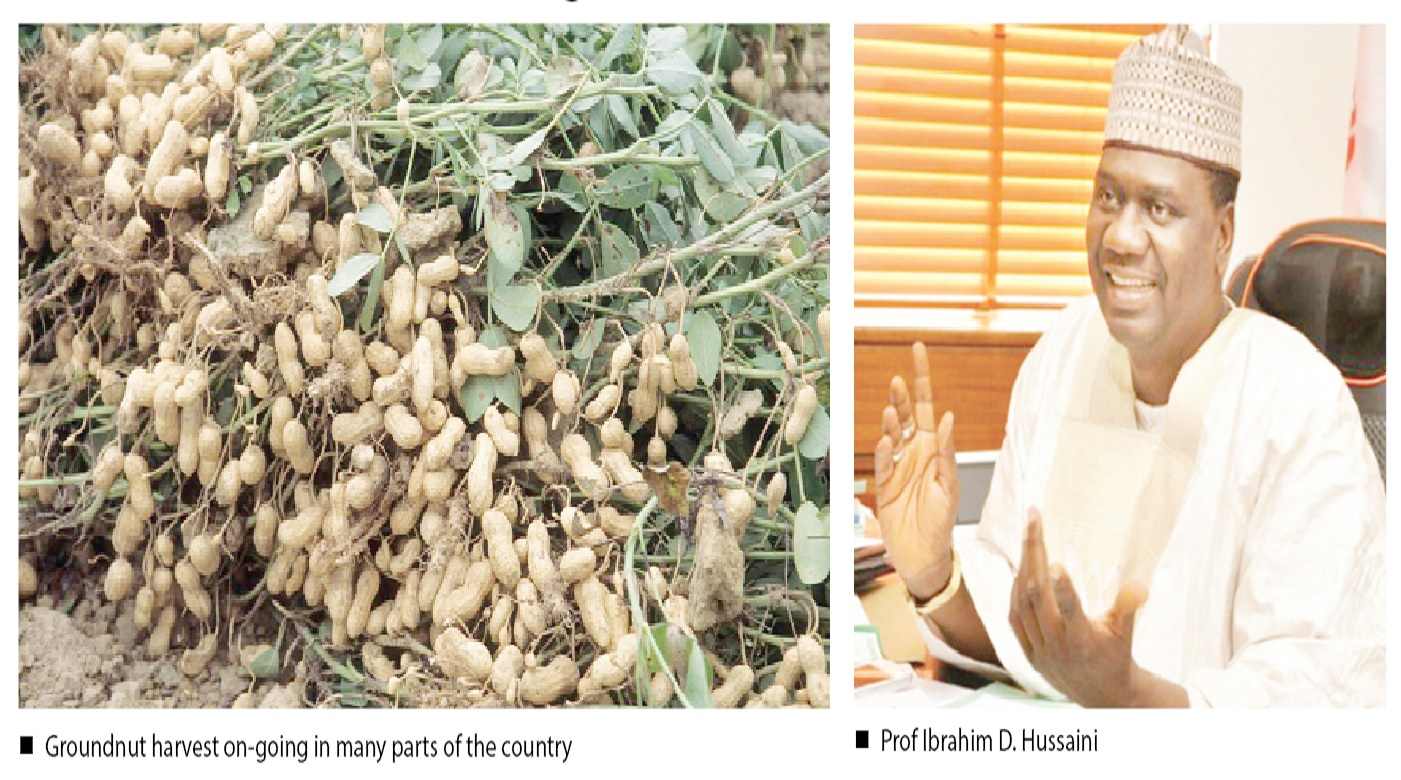Why we must do more for sesame, groundnut production – RMRDC
For the living standards of sesame, groundnut and soya beans value chain actors to be improved upon, concerted efforts must be made to increase the production of the seeds, Director-General of the Raw Materials Research Development Council (RMRDC), Prof Ibrahim D. Hussaini, has said. The DG said the economic importance of sesame, groundnut and soya […]

For the living standards of sesame, groundnut and soya beans value chain actors to be improved upon, concerted efforts must be made to increase the production of the seeds, Director-General of the Raw Materials Research Development Council (RMRDC), Prof Ibrahim D. Hussaini, has said.
The DG said the economic importance of sesame, groundnut and soya beans as industrial raw materials in Nigeria, has made the council to promote the value-chain development of the crops for industrial utilisation locally, as well as export.
Professor Hussaini, whose message was delivered by Dr. G. G. Awolehin, a director in the council, at the presentation of improved sesame and groundnut seeds to farmers’ leaders in Abuja recently, implored farmers to adopt agronomic best practices that would support the growth of the crops for bumper harvest this year.
In his message, Abdullahi Waziri Tambuwal, RMRDC’s governing board chairman, said the gesture was aimed at addressing the challenges of shortage supply of the crops toward harnessing their huge industrial potentials.
He said the initiative was expected to bring increased revenue and improved living standards for sesame and groundnut value chain actors, and increased supply of raw materials for the sesame and groundnut processing industries, thus creating a diversified revenue base as well as increasing employment opportunities along the value chain.
Daily Trust reports that two metric tons of sesame and groundnut seeds each were given to the farmers.
Meanwhile, RMRDC has presented improved soya beans seeds and organic ginger rhizomes to farmers of the crops across the country.
Barrister Tor Tsavsar, who represented the council’s governing board chairman, presented two metric tons of improved soybean seeds to members of the Soybeans Association of Nigeria in Benue State.
He said the initiative was targeted at increasing revenue and improving the living standard for soybeans value chain actors, resulting from increased soybeans production.
Dr. Adebayo Ajala presented three metric tons of organic ginger rhizomes for members of the Ginger Growers and Marketers Association of Nigeria on behalf of the council’s governing board chairman in Ibadan, Oyo State.
In a message to the event, the Director-General, Raw Material Research Development Council, Prof Ibrahim D. Hussaini, said it was necessary to promote the propagation and utilization of organic ginger because it has better sensory quality attributes (aroma and pungency), volatile essential oils, better oleoresin content and better dry recovery rate among others.
What you should know about sesame, groundnut
Sesame
Sesame is a flowering plant in the genius sesamum. It is one of the oldest oil seed crops globally known as it was domesticated well over 3000 years ago. It is widely naturalised in the tropical regions around the world and it is cultivated for its edible seeds which are known for their high nutritional value. The seeds, which contain about 50.0% oil, are rich in health promoting components such as dietary fibre, carbohydrates, proteins and magnesium. Sesame seeds are used in the preparation of traditional dishes and confectionery, as well as in the pharmaceutical, cosmetic and paint industries.
The average annual global production of sesame is estimated at 6.1 million tons and the largest producers are India, China, Myanmar, Tanzania, Nigeria, etc. Nigeria is the fifth highest producer of sesame seeds, producing about 400,000 tons per annum, and accounting for about 8% of the total world production, according to FAO Statistics, 2017.
Sesame is traded at the international market with China, Tanzania and Sudan rated as the highest consumption countries. It has been estimated that the consumption will grow at the rate of 2.0% per annum in the next six years, expanding the market to 9.5 million tons by 2025.
In Nigeria, about 22 states grow sesame with the major producing states being Jigawa, Nasarawa, Benue, Taraba, among others.
Groundnut
Groundnut (Arachis hypogea) has been playing an important role in the Nigerian economy as far back as the 1960s and is still relevant to the nation’s economy. Groundnut is an important source of high quality protein and oil. Its average oil content is 40-45%, which makes it one of the best oil-breeding seeds. It is used for food and also as an ingredient in confectionary products, amongst others. After the extraction of the oil, the residual cake is usually utilized as a component of animal feeds.
The current production of groundnut is estimated at 2 million tons per annum, representing 5% of global production.
Meanwhile, the 2015 presidential initiative on the development of edible oils recommended that the production of groundnut should be increased to 15 million tons annually.
Due to low production of groundnut and other oil seeds, the national demand for vegetable oil is being met through importation from different sources which are not mostly safe for human consumption.
